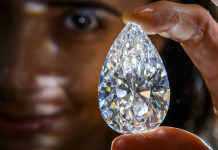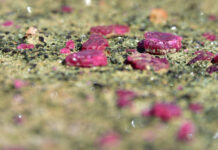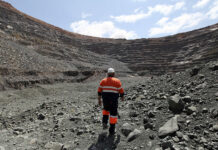
GEM Diamonds will consider paying special dividends should it discover high value stones at its Letšeng mine in Lesotho, said CFO, Michael Michael.
The UK-listed miner today reinstated the dividend announcing it would pay 2.5 US cents per share in June. The last time the company paid a dividend was in 2015. “We view this as an important milestone,” said Michael of the dividend announcement during the firm’s results presentation.
“We will annually review the dividend but we will also consider special dividends with important diamond discoveries.” Share buy-back programmes would also be reviewed “… on a continuous basis,” he said.
GEM Diamonds reported earnings from continuing operations of 12.1 US cents/share on the back of improved diamond prices and despite Covid-19 lockdowns that resulted in the loss of about six weeks’ worth of production.
Earnings before interest, tax, depreciation, and amortisation came in at $53m. The company closed the financial year ended December 31 with some $35m in net cash.
Pressed by an analyst on whether the firm would set down a dividend policy, Clifford Elphick, CEO of GEM Diamonds, responded: “This is a volatile business. We do have some insight into what’s coming down the track, but it’s not always precise.
“But an unusual dividend or special dividend is something that we have an opportunity to do that other companies do not,” he said.
GEM Diamond’s stake in Letšeng makes it the highest US per carat kimberlite producer globally. “That’s a good position to be in,” said Elphick. A 179 carat high quality white Type I diamond recovered at Letšeng on November 26 was the 16th diamond of over 100 carats recovered at Letšeng in 2020, the company said.
GEM Diamonds has forecast production of 123,000 to 127,000 carats in the current financial year and sales of 119,000 to 123,000 carats.
Elphick also announced that GEM Diamond was hoping to buy a Covid-19 vaccine directly. “We cannot just rely on the state,” he said, adding that discussions had been held with the UK government and UNICEF, a United Nations organisation that is focused on child protection and welfare. Elphick said the preference was for the vaccine developed and sold by AstraZeneca, but the more expensive vaccine produced by US pharmaceutical giant Johnson & Johnson was also being considered.
GEM Diamonds employs about 1,600 people.
Commenting on the diamond market, Elphick said there had been a significant improvement, especially in the mid-stream – diamond cutters and polishers – where confidence had improved largely owing to a cut in supplies last year.
He added that GEM was increasingly looking into supplying high value rough stones directly to jewellery brands, with one company recently discussing continuous supply. The potential move into direct end-user supply had been investigated previously by the firm as it sought to establish better pricing of its rough stones to the mid-stream.
In terms of this new supply model, GEM receives 100% of the rough diamond price and is then paid a mark-up price achieved from the jewellery brand. “We will do more of this,” said Elphick. “It is becoming more prevalent with high-end goods.”










